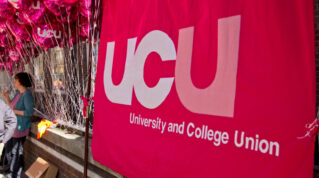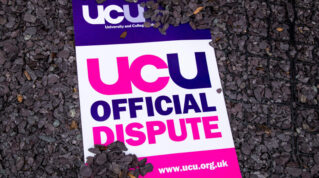A new government task force will aim to eradicate “contested or outdated theories” being taught to trainee FE lecturers, according to a call for evidence today.
It follows government steps to address “unacceptably poor quality” training in FE initial teacher education (ITE), including by restricting access to the student finance system for private providers.
An Ofsted thematic review of initial teacher education (ITE), published last month, said some outdated or debunked theories are still being taught “without critique”.
Inspections of FE ITE providers in recent years have also highlighted concerns about teaching theories that are “not supported by recent, pertinent research”, although they avoid citing specific examples.
The DfE said it has placed a “renewed focus” on the quality of FE teacher training and wants to establish a “more secure evidence base” for professional development at all career stages.
Officials have today issued a call for evidence of “relevant, high-quality theory and knowledge” underpinning early career training for FE teachers, which will be considered by an “expert advisory group” that will go on to recommend new statutory guidance for FE teaching programmes.
It said: “Evidence from Ofsted inspections of FE ITE provision shows significant variability in the content of ITE programmes, particularly with respect to pedagogical content, where there can be an uncritical acceptance of a range of contested or outdated theories.
“Through this call for evidence, we want to establish a baseline of appropriate, evidence-based pedagogical content that can underpin ITE programmes and effective early career professional development for FE teachers.
“We expect responses to be wide ranging, reflecting different approaches to preparing teachers effectively in different parts of the sector, and we encourage responses from a range of practitioners in different roles and provider types, not just those responsible for delivering ITE programmes in colleges.”
Individuals and organisations being invited to contribute includes those delivering ITE programmes, professional development programmes, ITE qualifications, quality assurance professionals or academic researchers.
Officials are “particularly keen” to hear from professionals involved in teacher training for construction and health and social care.
A ‘renewed focus’
The government recently announced that it will support FE teachers with “new structured professional development” from initial teacher training up to leadership, with further details expected in the post-16 white paper next week.
But Ofsted has long raised concerns about FE teacher training providers continuing to promote theory which is “no-longer considered effective practice”.
In a 2022 blog, the inspectorate said of the 14 inspections of ITE programmes it carried out over two years, almost two thirds were graded ‘requires improvement’ or ‘inadequate’.
The following year the DfE announced plans to axe private providers from the FE teacher training market, cutting 12 independent training providers off from an estimated £27 million in fee income, affecting nearly 4,500 students.
Only HE providers with degree awarding powers or providers they are working in partnership with now have access to the loans system.
The department also plans to force FE teacher training organisations to be accredited by the DfE to establish a “clearly defined quality bar” that providers must meet before accessing public funding.
Last year, in its response to Ofsted’s Big Listen public consultation, the inspectorate said trainees are “not being prepared” for their teaching careers, with providers “wasting” their time, “draining public money” and failing to build a pipeline of FE and skills teachers.
It added: “Evidence we have gathered has contributed to reforms that make it more difficult for these providers to continue.”
In April this year, HE regulator the Office for Students published an investigation report that found trainee FE teachers did work placements at cafes, clothes shops and with dissolved companies – before their private training company closed itself down while under investigation.
















Long overdue.
Too many outdated practices pedalled by leaders that didn’t work then and don’t work now. A secure evidence base is the starting point.
Let’s see the end to those leading ITE who aren’t suitably qualified themselves and who dismiss the practice that works from other settings without thought.
I worked in FE ITE for many years and struggled to get providers and leaders to embrace wider and modern theories, especially those stemming from recent research in the sector by those with significant experience working in FE. Learning Styles, and theories popularised in early childhood education are often favoured by leaders who began their careers and studies in other education sectors so they stick with what they know. Professionals working in FE are engaging in research that is valid and contemporary to those new trainees.
No mention of which theories are supposedly debunked. I’m guessing that we are talking about VAK . But where is the evidence to contradict this if this is the case?
Yep, but it is not just VAK, all of the Learning Styles theories were debunked as long ago as 2008 with the report by Frank Coffey et al.
They examined179 theories & found that there was no scientific basis – in psychological or pedagogical terms – for any of them.
Yet so many providers are still pushing these pseudo-theories with no solid pedagogical foundations.
Lots of studies since then have agreed with the conclusion.
It is time they were binned!